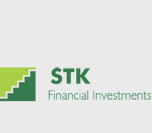|

Useful infos
Investment funds
- What is an investment fund?
- What are the advantages of an investment fund?
- How are the investors protected?
- What are the types of funds existing in Romania?
- What is the time horizon for fund investment?
- What is an investment fund?
- A fund is a form of undertaking for collective investment that raises money from a number of investors and invests it in stocks, bonds, money market instruments, or other securities.
- The fund manager trades the securities that underlie the fund.
A fund can earn money in two ways: from capital gains or from the dividends or interests received.
- What are the advantages of an investment fund?
- Diversification: a fund may own shares of multiple issuers, much more than an individual investor could afford. Diversification involves both individual stocks, and different investment sectors.
The principle underlying diversification is that investment in a large number of stocks helps minimize the loss caused by certain stocks with the gains obtained from others.
- Professional management: few investors have the necessary knowledge to invest and reinvest their money and time to study all the stocks in the financial markets. An important advantage of the funds is that, at least theoretically, they manage money in a professional manner. A fund should constitute, in principle, a cheap method for a small investor to have access to a professional manager who would manage the former’s investments.
- Economies of scale: since a fund sells and buys large quantities of securities, the trading costs are less than the costs for one individual.
- Tax advantages: funds do not pay profit tax for the trades made.
- Liquidity: every fund keeps some cash money, and therefore the units of fund can be redeemed and the money can be received at any time, while the stocks in their own portfolios do not need to be sold.
- Low risk: due to diversification, the losses that could be caused by the problems of a certain company or sector are much reduced.
- How are the investors protected? ?
- According to the authorization or registration with the National Securities Commission ( www.cnvmr.ro)
the funds have an obligation to abide by certain rules of prudent management that regulate undertakings for collective investment.
- Investment limits imposed by legislation, according to the type of fund, with a view to reducing risk and exposure created by specific issuers.
- Transparency is ensured by the periodic reports funds are required to publish for investors and submit to the NSC.
- The funds’ assets are kept by a depository, which daily certifies the net asset value.
- What types of funds exist in Romania?
- According to the manner of subscription and redemption of their units, funds can be open-end or closed-end. According to legislation, open-end funds are called undertakings for collective investment in transferable securities (UCITS), and closed-end funds have recently become alternative investment funds (AIFs). UCITS units may be bought or redeemed daily by investors at the net asset value per unit.
- However, AIFs subscription and redemption are only carried out at certain time intervals, according to the rules set in the prospectus.According to the assets they invest in, the most common types of AIFs are hedge funds, real estate, private equity and infrastructure funds.
- What is the time horizon for fund investment?
- Most of the investment funds recommend owning the units of fund for a minimum period of 1 year. If the time interval is less, there is a risk of an unfavorable market trend. Some funds also charge higher redemption fees for less than 1-year ownership.
- The time horizon for investment depends on the investor’s objectives and risk profile. Statistically, over extended periods of time, stock funds are the most efficient. In the short term, fixed income funds are preferable.
|
|
 |
|
Raport activ net STK Emergent Noiembrie-2025
|
|
|
|
Raport curent AC proiect Green Square
|
|
|
|



